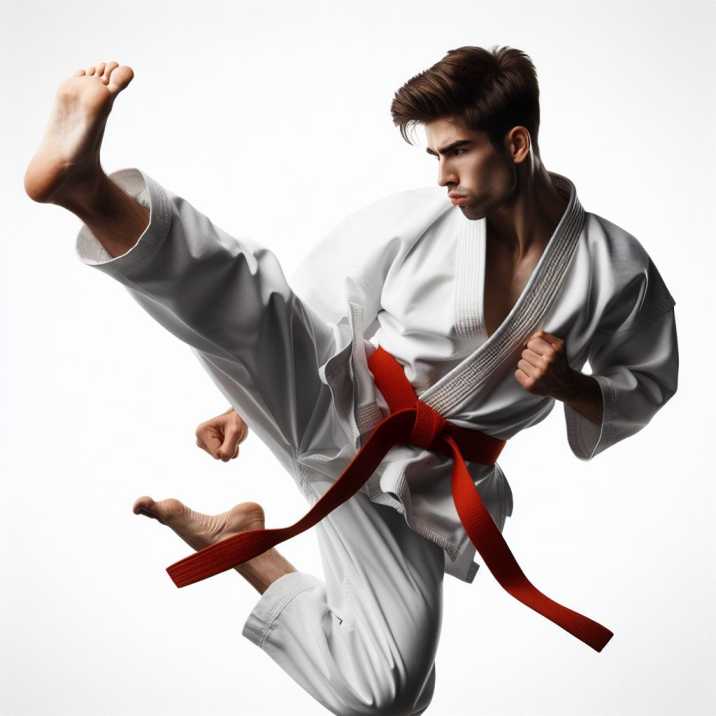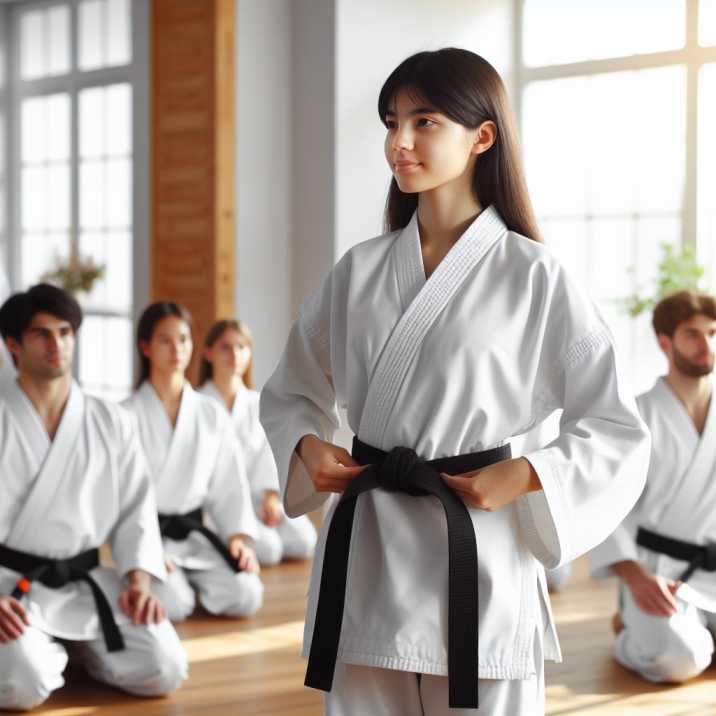Introduction
Table of Contents
What Does Karate Mean?
In the realm of martial arts, one discipline stands out for its rich history, disciplined techniques, and profound philosophy – Karate. As we delve into the intricate world of this ancient martial art, we aim to unravel the mystery behind the question, “What does karate mean?” This article seeks to provide a comprehensive understanding of karate, exploring its origins, core principles, benefits, and cultural significance. Let’s embark on a journey to uncover the essence of karate.

The Origins of Karate: Tracing the Roots
To comprehend what karate signifies, we must first explore its origins. Karate finds its roots in Okinawa, Japan, where it evolved from indigenous martial arts influenced by Chinese forms. The word “karate” itself translates to “empty hand,” emphasizing the discipline’s focus on unarmed combat. As we peel back the layers of history, we discover a fusion of Okinawan and Chinese martial arts, culminating in the birth of karate as we know it today.
Unveiling the Essence: What Does Karate Mean?
The Physical Aspect
Karate is a holistic martial art that incorporates a diverse range of physical movements, strikes, and defensive techniques. At its core, it teaches practitioners to harness their body’s strength and agility efficiently. Through rigorous training, karate instills discipline, improves flexibility, and enhances overall physical fitness.
The Mental Aspect
Beyond physical prowess, karate places a strong emphasis on mental discipline. Practitioners cultivate focus, self-control, and resilience, fostering a harmonious balance between mind and body. The mental aspect of karate goes beyond the dojo, influencing daily life and promoting a sense of responsibility and respect.
The Spiritual Aspect
Embedded within the fabric of karate is a profound spiritual philosophy. Drawing inspiration from traditional Japanese and Okinawan beliefs, karate seeks to cultivate virtues such as humility, perseverance, and integrity. The discipline serves as a path to self-discovery and personal growth, transcending the boundaries of physical combat.
Benefits of Karate: More Than Just Self-Defense
Physical Fitness
Karate is a dynamic form of exercise that promotes cardiovascular health, muscular strength, and flexibility. The rigorous training routines, including kata (choreographed patterns of movement) and sparring, contribute to a well-rounded fitness regimen.
Self-Defense
One of the primary purposes of karate is self-defense. Through the mastery of striking techniques, blocks, and evasive maneuvers, practitioners gain the skills and confidence to protect themselves in real-world situations.
Mental Clarity and Focus
The mental discipline instilled by karate extends to daily life, enhancing concentration, decision-making, and emotional control. The meditative aspects of karate contribute to a calmer mind and improved mental well-being.
Character Development
Karate is not merely a set of physical skills; it is a journey of character development. Practitioners learn the importance of respect, humility, and perseverance, fostering a strong sense of integrity and responsibility.
The Cultural Significance of Karate
Karate is deeply intertwined with Japanese and Okinawan culture, reflecting the values and traditions of these societies. The practice of bowing, the use of traditional uniforms (gi), and the adherence to a code of ethics (dojo kun) all contribute to the cultural richness of karate.
Understanding What does karate mean? Through a Visual Reference
For quick reference, here is an informative table summarizing key aspects of karate:
| Aspect | Description |
|---|---|
| Physical Fitness | Enhances cardiovascular health, strength, and flexibility. |
| Self-Defense | Equips practitioners with skills for real-world self-defense. |
| Mental Clarity | Improves concentration, decision-making, and emotional control. |
| Character Development | Fosters virtues such as respect, humility, and perseverance. |
| Cultural Significance | Deeply rooted in Japanese and Okinawan traditions, reflecting cultural values. |
Conclusion: Unleashing the Potential Within
In conclusion, the question, “What does karate mean?” encompasses a multifaceted answer. Karate is not just a form of self-defense; it is a holistic discipline that molds the body, mind, and spirit. Its roots in Japanese and Okinawan culture, coupled with its emphasis on physical fitness, mental discipline, and character development, make karate a unique and enriching martial art.

Frequently Asked Questions (FAQs)
- What does the term “karate” mean?
- Karate translates to “empty hand” in Japanese, emphasizing its focus on unarmed combat.
- Is karate only about physical combat?
- No, karate involves mental and spiritual aspects, promoting discipline, focus, and character development.
- How does karate contribute to physical fitness?
- Karate includes dynamic movements, kata, and sparring, enhancing cardiovascular health, strength, and flexibility.
- What role does spirituality play in karate?
- Karate’s spiritual aspect involves cultivating virtues such as humility, perseverance, and integrity.
- Can anyone practice karate?
- Yes, karate is suitable for individuals of all ages and fitness levels.
- Is karate effective for self-defense?
- Yes, karate equips practitioners with striking, blocking, and evasive techniques for real-world self-defense.
- How does karate influence daily life?
- Karate promotes mental clarity, improved decision-making, and emotional control in daily life.
- What is the significance of the traditional karate uniform (gi)?
- The gi symbolizes respect for tradition and creates a sense of unity among practitioners.
- Are there different styles of karate?
- Yes, various styles of karate exist, each with its unique techniques and philosophy.


